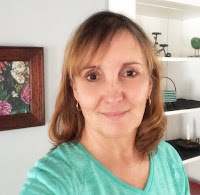What you offer on your website consistently will draw readers to your site. Develop authoritative content that readers can use and you will connect with them. Research takes time, but is of vital importance to your writing, your message. Make it real and it will engage your audience.
With One Billion active websites, we have a lot of competition and noise to challenge us. To offer free, usable information is fundamental to the survival and success of our websites.
I suggest the following Tips for readership engagement:
• Offer information with longevity on separate static pages. Offer info that is current and fluid within your post line-up.
• Link to resources external to your site you find of value and keep track of the dynamic nature of active or inactive status for each.
• To persuade readers to spend more time on your site, provide links to your archived posts or static pages within your Blog.
• Consider adding downloadable free offers.
- Do you have an eBook published or ready to publish?
- Can you offer a revised piece as a free article or eBook to download?
- Only readers registered to follow your site by auto-emails should be eligible for the free download offer.
• Add visuals: many sites such as Pinterest are photograph-driven.
• Add links to your site with a brief post intro to your Facebook, Google+, Twitter, LinkedIn, Pinterest, etc., pages.
• Always include tags for posts and your motto.
November is National Novel Writing Month check it out at http://nanowrimo.org/. I am participating and hope you will too. For Non-Fiction check out Nina Amir’s November event at http://writenonfictionnow.com/4-ways-prepare-30-day-writing-challenge/
I appreciate your feedback. Please comment below. Thank you much! deborah
Deborah Lyn Stanley is a writer, editor and artist. She is a retired project manager who now devotes her time to writing, art and caregiving mentally impaired seniors.
She has independently published a collection of 24 artists’ interviews entitled the Artists Interview Series. The series was also published as articles for an online news network and on her website: Deborah Lyn Stanley - WritersBlog. Deborah is published in magazines. She is a blogger who has managed several group sites including ones she founded.
“Write your best, in your voice, your
way!”
















